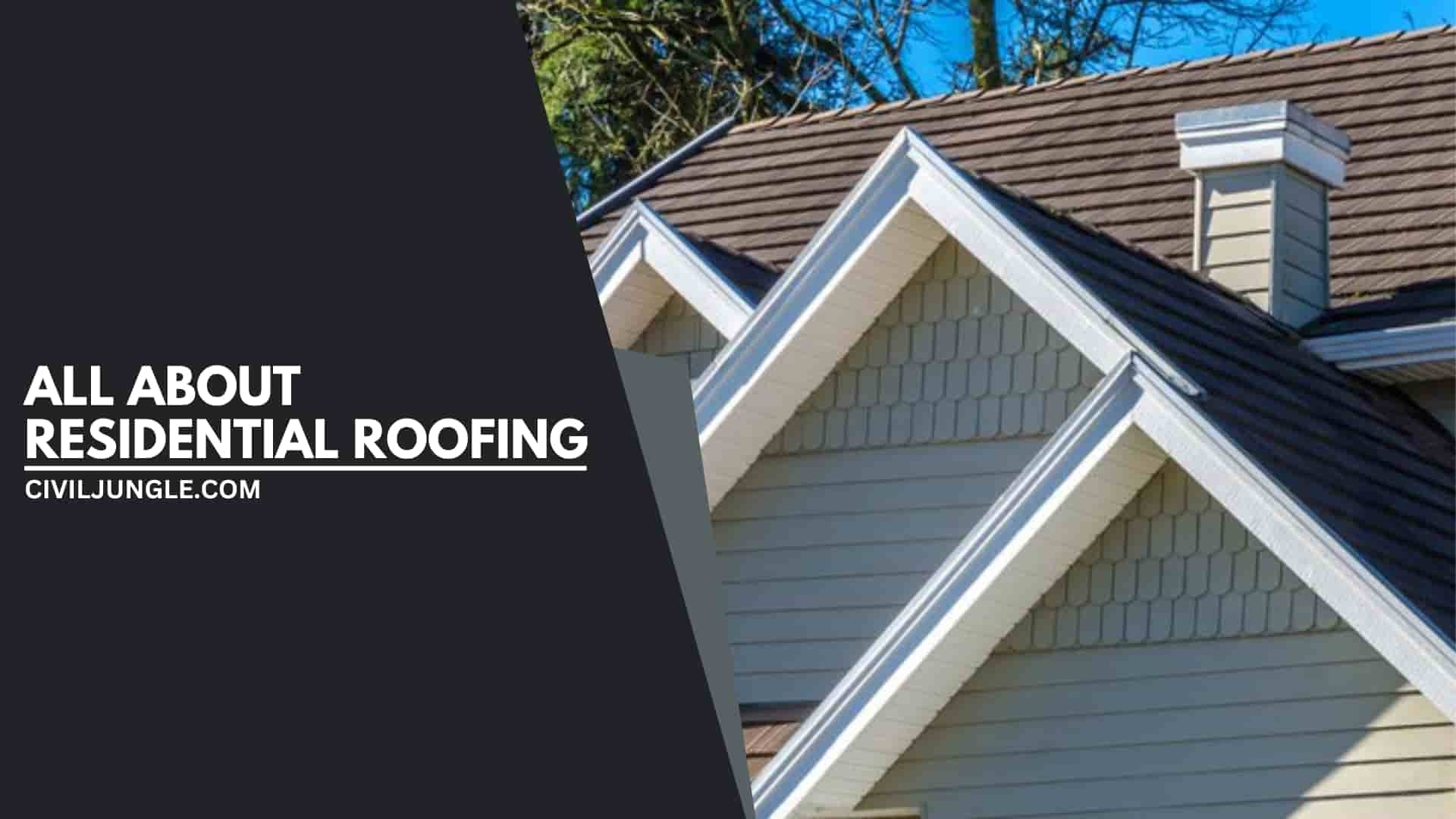
Introduction of Residential Roofing
Residential roofing is different from commercial roofing in terms of materials, design, installation, and maintenance costs. A higher slope residential building has a pitched roof that’s also simple to install. For the residential building roof installed expertise are essential, who can help you decide which roof is best for you and also help to select a good material for your roof.
Compare to commercial roofs the roofs of the residential buildings cover a small area. The materials that are used for constructing a residential building that’s are, solar shingles, metal roofing, wood shakes, slate or tile shingles, asphalt, ceramic, and also additional supportive material.
The roof which is used in residential building, that makes the building economical in many ways that’s are, easy to find the damage on the roof with the help of its small size, easy to clean and also you can replace the broken shingles yourself and when need you can also clean the gutters yourself.
Which Residential Roof Type Is Best for You?
Which type of residential roof is best for you depends on many factors, that’s are how more long your building is, in which area where you want to construct the roof, the availability of the materials in your local area, and the design of your roof.
And another factor is how much money you have considers for your home and also the area that’s you consider for your home.After that, you have to discuss with an expert and decide on a comfortable design, type of structure for your home. After concerning the above factors, you can easily decide which residential roof type is best for you.
Types of Roofing
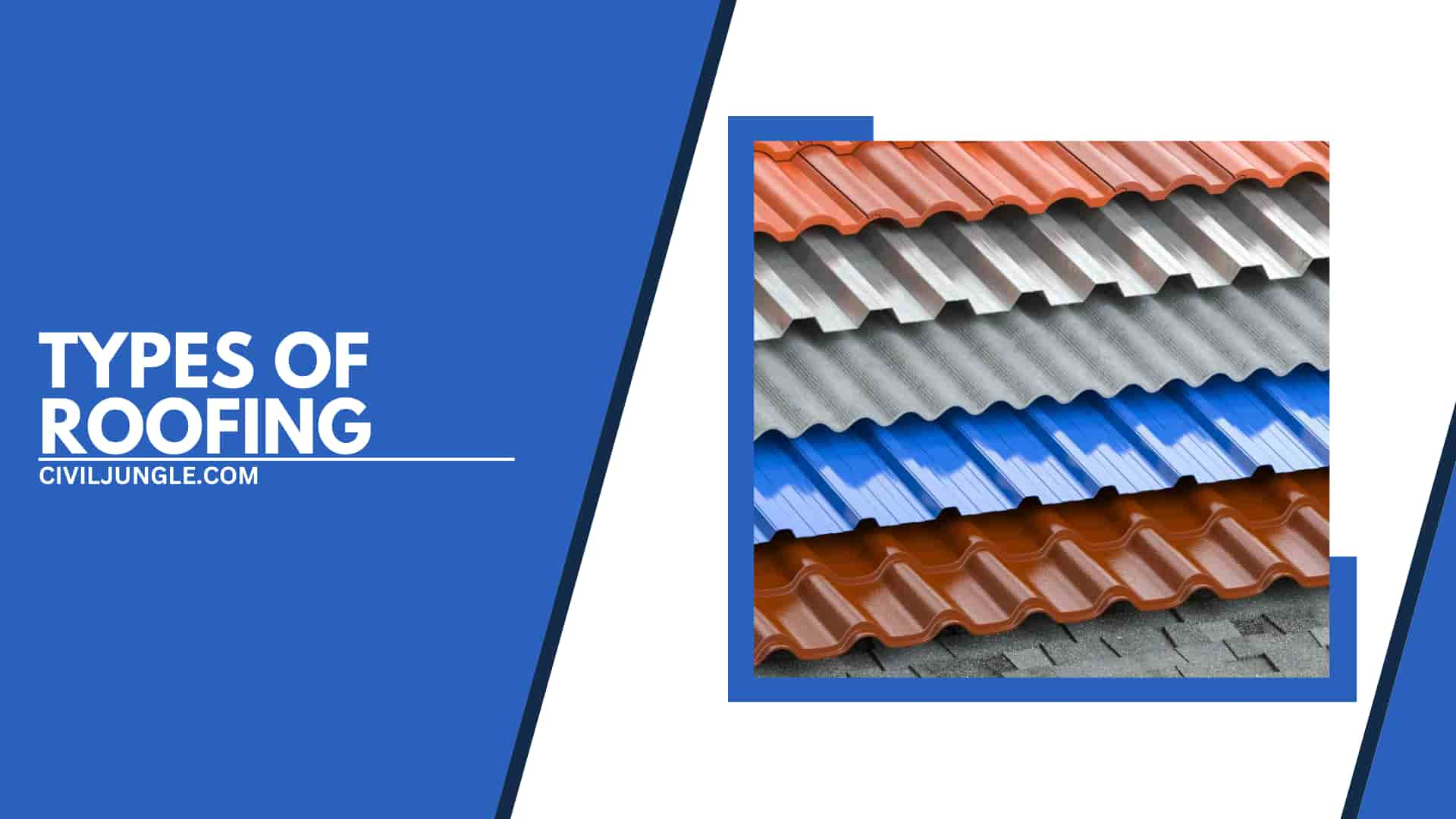
There are many types of roofing styles and types of roofs for houses as listed below.
1. Flat Roofs
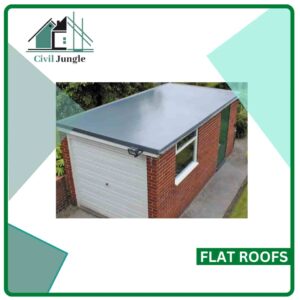
Throughout the world, on commercial buildings, flat roofs or low slope roofs are commonly used. A sloping roof has a slope of 3 in 12 or 1: 4 according to the National Roofing Contractors Association. This type of roof is exits all over the world and mostly where is warner climate, rainfall is less and occur freezing is unlikely.
2. Mansard Roof
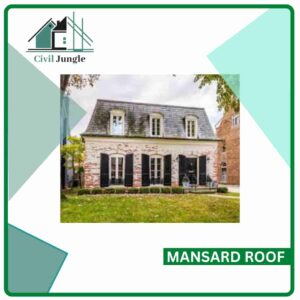
A four-side gambrel-style hip roof is also called a mansard roof or a mansard. With the lower slope on its of its sides, it is characterized by two slopes punctured by dormer windows. Without windows, a steep roof inhabitable space creates an additional floor and for a given number of habitable stories, it reduces the overall height of the building.
3. Asphalt Roofing
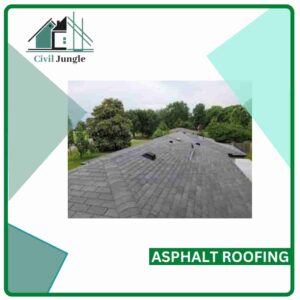
On the market, today asphalt roof shingles are affordable and one of the most common roof covering materials. In the asphalt roof shingles, the base materials are glass-fiber that is an inorganic material and the other one is paper that is an organic material. With the limestone power, of asphalt an asphaltic mixture of composed and also another mineral stabilizer like fillers.
4. Dutch Gable Roof
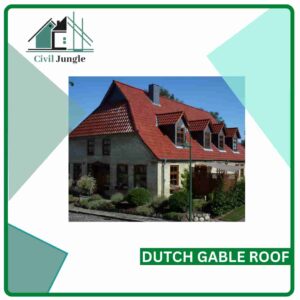
The Dutch gable roof is also called a gablet that consists at the top of a roof of a small gable. In this type of gable roof, two sloping sides peak at the top center. To mean a gable with a parapet the Dutch gable term is also used. It is used for many building designs which have two sloping sides which create a ridge by meeting together.
5. Gable Roof
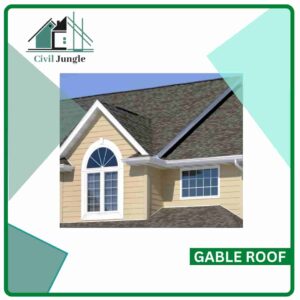
The gable roof is also known as a pitched roof. In this type of roof, two sloping sides peak at the top center. It is used for many building designs and has two sloping sides which meet to form a ridge. It can be identified by the triangular shape formed at either end.
Find the Right Roof Type for Your Home-Based on Design, Function, and Price:-
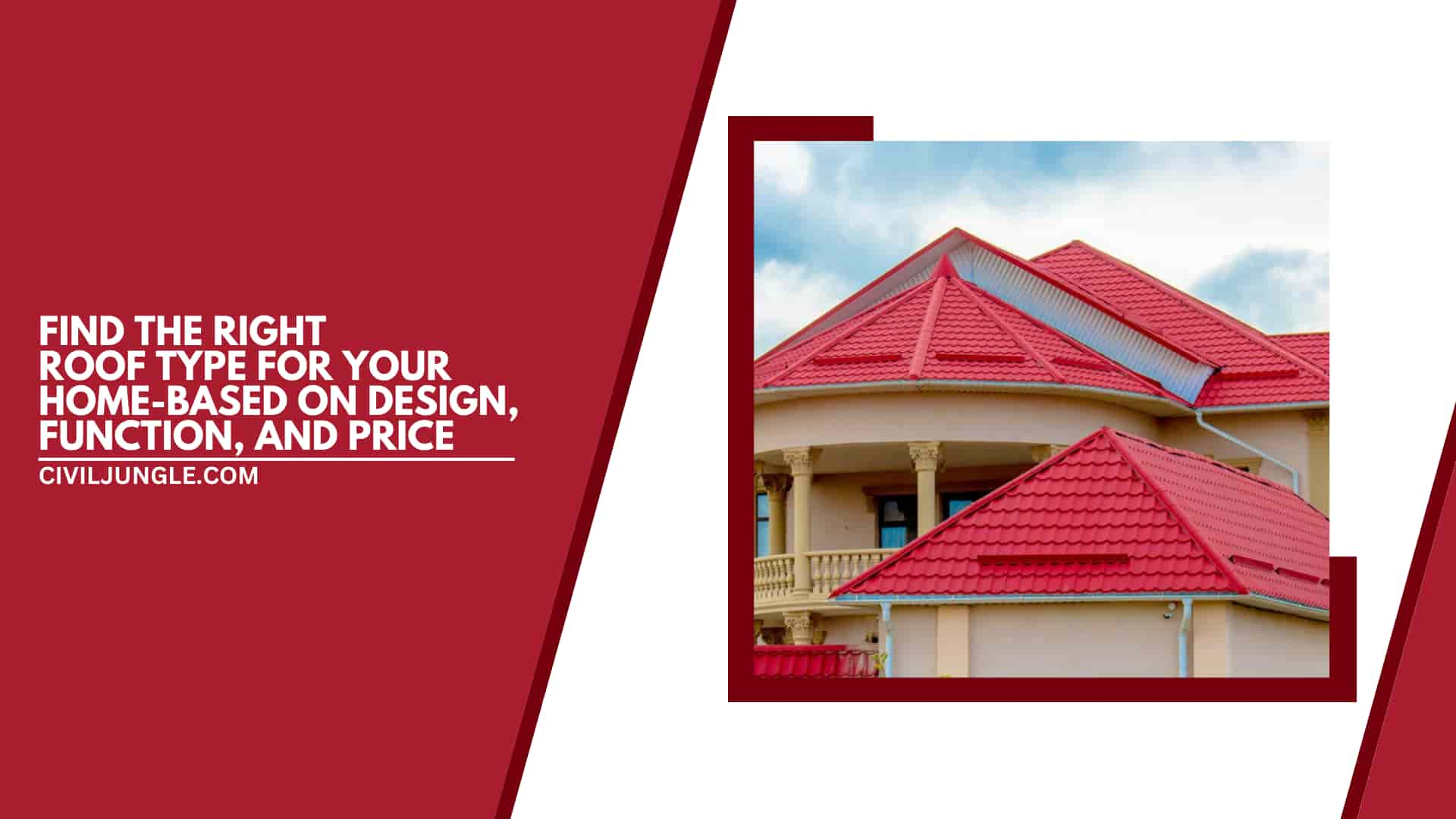
1. Find the Right Roof for Your Home-Based on Design
In the residential building, there are various roof design types and house roof types for construction. The design of the residential building roof is a major fact that depends on the homeowner’s demand. For the design of the residential building roof, you should need an expert for the construction. A good designer can increase the beauty of your roof easily at a low cost.
2. Find the Right Roof for Your Home-Based on Function
In the construction of a residential roof design, roofing has many functions that are its help to protect from rain, sunlight, and temperature. A function of a good roof is, it also helps to provide a good ventilation system to the home. Another function of a roof is, it provides good stability to the building.
3. Find the Right Roof for Your Home-Based on Price
The price of the house roofing design varies with the specific roof design for home. In the construction of residential building roofing, the roof is typically measured in 100 square feet.
If you have a high economy for your roof then you can select high price roofing design, on the other hand, you have a low budget for your roof then you can select low budget roof design. Another process is, you should be discussing with a roofing expert to select a good roof for your home according to your demand.
Frequently Asked Questions (FAQ)
What Are the Main Types of Residential Roofing?
Residential roofing comes in various styles including:
- Flat Roofs: Common in warmer climates with less rainfall.
- Mansard Roofs: Characterized by four sides and a steep slope.
- Asphalt Roofing: Affordable and widely used, available in glass-fiber and paper-based options.
- Dutch Gable Roofs: Features a small gable at the top and two sloping sides.
- Gable Roofs: Identified by two sloping sides that form a ridge, creating a triangular shape at either end.
How Do I Determine Which Roof Type Is Best for My Home?
Choosing the best roof type depends on:
- Design Preferences: What aesthetic do you want for your home?
- Functionality: How well does the roof protect against weather, provide ventilation, and add stability?
- Budget: What is your budget for roofing materials and installation?
- Local Climate: What type of weather conditions will the roof need to withstand?
What Factors Should I Consider When Selecting Roofing Materials?
Consider the following factors:
- Climate: Some materials are better suited for specific weather conditions.
- Durability: How long will the material last?
- Maintenance: How easy is it to maintain and repair?
- Cost: What is the initial and long-term cost of the material?
- Aesthetics: How does the material complement the overall design of your home?
Can I Install or Repair My Roof Myself?
While minor repairs like replacing broken shingles or cleaning gutters can be done yourself, it’s often best to consult with a professional for:
- Installation: Proper installation is crucial for roof performance and longevity.
- Major Repairs: Complex repairs or replacements should be handled by experts to ensure safety and effectiveness.
What Are the Benefits of a Well-Designed Residential Roof?
A well-designed residential roof offers:
- Protection: Shields your home from rain, sunlight, and temperature extremes.
- Ventilation: Enhances airflow to prevent moisture buildup and improve indoor air quality.
- Stability: Adds structural integrity and longevity to your home.
- Aesthetics: Contributes to the overall appearance and value of your property.
How Can I Manage Roofing Costs Effectively?
To manage costs:
- Plan and Budget: Determine your budget and stick to it.
- Get Multiple Quotes: Compare quotes from different roofing contractors.
- Consider Long-Term Costs: Invest in durable materials that may cost more upfront but save on repairs and replacements over time.
- Maintenance: Regular maintenance can prevent costly repairs and extend the life of your roof.
What Should I Ask a Roofing Expert Before Hiring Them?
Before hiring a roofing expert, ask:
- Experience and Credentials: How long have they been in business? Are they licensed and insured?
- References and Reviews: Can they provide references from past clients?
- Warranty: What kind of warranty do they offer on materials and workmanship?
- Detailed Estimate: Can they provide a detailed estimate of the project cost and timeline?

